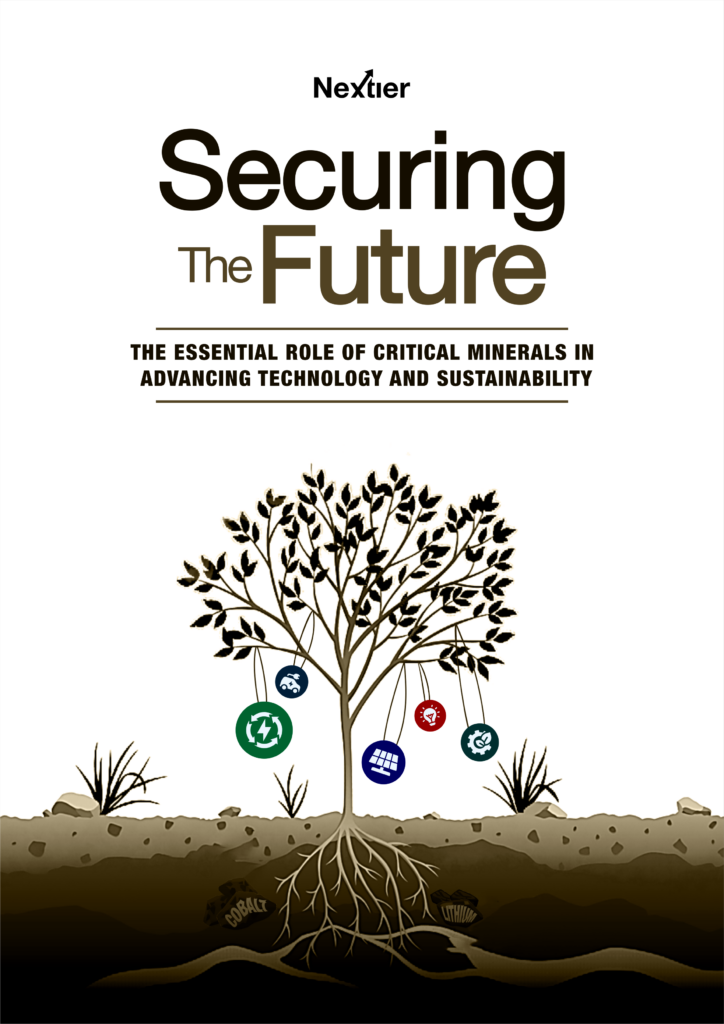
In today’s era of rapid technological advancement and increasing focus on sustainability, the crucial role of critical minerals cannot be overstated. These minerals, essential components in a wide range of modern technologies, are the building blocks that drive innovation and progress across various industries. From renewable energy and electric vehicles to advanced healthcare and communication systems, critical minerals are the backbone of the technologies that are shaping our future. Critical minerals, also known as rare earth elements, are a group of minerals that are vital for the development and manufacturing of high-tech products and essential infrastructure. These minerals are characterised by their unique properties, which make them indispensable in applications ranging from aerospace and defence to electronics and clean energy. Examples of critical minerals include lithium, cobalt, rare earth elements like neodymium and dysprosium, and platinum group metals like platinum, palladium, and rhodium.
The rapid growth of industries such as electric vehicles, renewable energy, and advanced electronics is driving the increasing demand for critical minerals. For instance, lithium and cobalt are essential components in lithium-ion batteries, which power electric vehicles and energy storage systems. Rare earth elements are used in the manufacturing of smartphones, computers, and other high-tech devices, while platinum group metals play a crucial role in catalytic converters and fuel cells. These minerals are also major ingredients in the production of medical devices, aerospace components, and defence systems. As the global economy transitions towards a cleaner, more sustainable future, the importance of critical minerals becomes even more pronounced. Renewable energy sources like wind, solar, and hydroelectric power rely heavily on critical minerals for the production of solar panels, wind turbines, and energy storage systems. The shift towards electrification and decarbonisation necessitates a secure and sustainable supply of critical minerals to meet the rising demand for clean technologies.
However, ensuring a resilient supply chain for critical minerals presents its own set of challenges. Many of these minerals are concentrated in a few countries, leading to concerns about supply chain disruptions and geopolitical dependencies. Additionally, the extraction and processing of critical minerals can have environmental impacts, such as habitat destruction, water contamination, and air pollution. Addressing these challenges requires a holistic approach that prioritises responsible sourcing, recycling and reuse, and innovation in mineral processing technologies.
To secure the future of technology and sustainability, it is imperative that stakeholders across industries collaborate to develop strategies for responsible mineral sourcing and supply chain management. Governments, industry leaders, and research institutions must work together to diversify mineral sources, promote recycling and circularity, and invest in research and development to reduce dependence on scarce resources. By adopting a proactive and sustainable approach to managing critical minerals, we can ensure a stable and resilient supply chain that supports innovation, economic growth, and environmental stewardship.
Critical minerals play a vital role in advancing technology and sustainability, serving as the foundation for the development of cutting-edge products and solutions that drive progress in various industries. As we navigate the challenges of a rapidly changing world, securing a stable and sustainable supply of critical minerals is essential for building a future that is both innovative and environmentally responsible.
References
- Dou, S., Xu, D., Zhu, Y., & Keenan, R. (2023). Critical mineral sustainable supply: Challenges and governance. Futures, 146, 103101. https://doi.org/10.1016/j.futures.2023.103101
- Moores, S., & Bazilian, M. (2023). What are critical minerals – and why are they key to a greener future? World Economic Forum. https://www.weforum.org/agenda/2023/05/critical-minerals-technology-geopolitical-greener-future/
- IEA. (2021, May). The Role of Critical Minerals in Clean Energy Transitions – Analysis. IEA. https://www.iea.org/reports/the-role-of-critical-minerals-in-clean-energy-transitions
- Bayly, A., & Tzinieris, S. (2024). Securing America’s Critical Minerals: A Policy Priority Conundrum. Thediplomat.com; The Diplomat. https://thediplomat.com/2024/08/securing-americas-critical-minerals-a-policy-priority-conundrum/